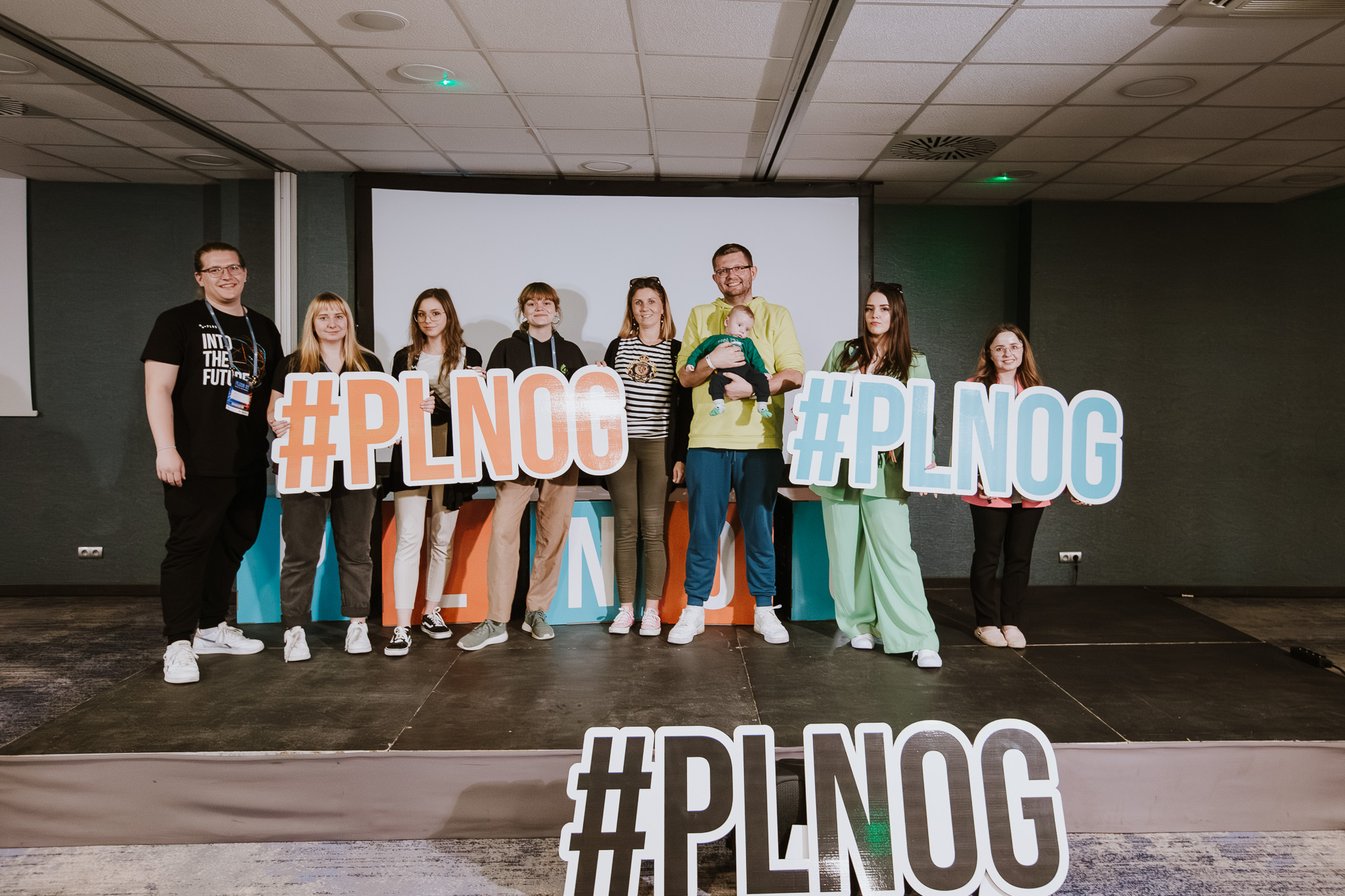As the CEO and co-owner of a company specializing in organizing technology events, I work in a dynamic environment whose hallmark is stress. As you can read in many publications, including an article written by Simone Johnson (https://www.businessnewsdaily.com/1875-stressful-careers.html), factors such as the amount of travel, irregular working hours, chasing deadlines (so-called deadline-y), working with people and in front of audiences, competitiveness, physical demands or other hazards and risks associated with organizing events have made an event coordinator among the 10 most stressful professions in the world. I found this out for myself as I went through all levels of my career with this company, from volunteering at events to being on the board of directors.
Nowadays, we try to blur the gender differences that have accrued in many professions. The “Women in IT” trend is popular, and a number of initiatives related to this topic are emerging (such as She Hacks as part of the HackYeah hackathon we organize), but in our company about 75% of the team is female, including largely women in managerial and leadership positions. This unique configuration, while intriguing, is not without its challenges and sometimes poses specific difficulties that are worth discussing.
How events are organized
Organizing events in the IT sector, such as conferences and hackathons, is an extremely complex process that requires precision, flexibility and lightning-fast problem-solving. Not only do you have to handle the logistics – from finding the right space to providing equipment and catering – but you also have to make sure that the program is attractive to participants, diverse and up-to-date. In such an atmosphere, stress levels can often be high. However, it is not only acute and destructive stress that can negatively affect your well-being. It’s also a stressor that, once overcome, gives an incredible rush of endorphins, a sense of accomplishment and the satisfaction of a job well done. There is nothing better than seeing satisfied participants and knowing that the organizer’s efforts have helped inspire and develop them. I personally love these moments and this interaction with people.
Managing emotions and dealing with stress
Managing emotions and stress in the work environment is always important, but in our company it is a particularly critical aspect. In a team composed mainly of women, emotions often play a significant role in the decision-making process. However, I have noticed that this mix of hectic agitation, reliability and multitasking makes for more thoughtful and effective decisions despite the pressure of stress and limited time. This is a unique trait, especially in an industry as stressful as organizing IT events, where the need to make quick decisions is frequent.
Imagine a situation where an hour before the official start of the hackathon, it turns out that the computer or technical equipment supplier is behind schedule and does not fulfill the contract on time. In this situation, the organizer must make a snap decision: should he delay the start of the event, or find an alternative solution, such as using backup equipment that may be less advanced but available on site? Or perhaps opt for a reformulation of the event, oriented more toward conceptual work than programming?
Each of these decisions has consequences. Delay can discourage participants and generate negative feedback, the use of inferior equipment can limit the technical capabilities of projects, and a change in formula can irritate those who came with a specific goal. And all this must be resolved within minutes, and sometimes even faster.
Here is another example: An event where a keynote speaker is scheduled to speak – an expert in his field who attracts a large number of attendees – is fully organized and everyone is ready for his presentation. Unfortunately, half an hour before the speech, it turns out that the speaker has a personal emergency and will not be able to arrive on time. This is the moment when adrenaline and cortisol jump to the top.
The manager must make a decision immediately. Do you try to shift the whole schedule and arrange some alternative activity for that time? Can it replace the speaker with another person who may not be as reputable, but is able to deliver valuable content? Why not introduce a question-and-answer session with other experts or step up networking? Have we experienced such situations? Of course it is!
Such quick decisions are stressful, because they affect the perception of the entire event and the satisfaction of its participants. But if an effective solution can be found, satisfaction and a surge of endorphins are guaranteed. Organizing IT events is definitely a job for people who can keep their cool in crisis situations and draw energy from them to keep going.
In our company, managers are not only precise and reliable in project management, but also are not afraid of challenges and new projects. What’s more, they have a unique ability to build business relationships with partners, participants, speakers and representatives of the Program Boards of the IT events we organize. This is a key element that often determines the success of the entire project.
All this requires managers and coordinators not only to have excellent organizational skills, but also interpersonal skills. They must be able to communicate effectively, manage conflict and negotiate, and be flexible and open to the needs of different stakeholder groups. It’s a job that constantly demands attention, but one that many find extremely rewarding.
Future and positive outlook
Those who know me know that I am an optimist, although I know that there are still plenty of challenges ahead. Especially since we have only just emerged from the pandemic, which was also a period full of stress and uncertainty for us. Proper crisis management allowed us to get through this difficult time. Currently, our company is growing strongly to realize even more interesting IT events in the future. Challenges are part of any business and provide opportunities to grow and learn. I believe that over time, project management skills and precision in our team will take precedence over stress and emotional issues. This is due to several different thoughts and observations:
1) Experience: With each new project, the team gains experience that improves it. Mastering effective project management techniques, such as Agile or Scrum methods, can reduce stress levels over time and bring more structure to the work. Did we used to be able to do hackathons? Of course not. Have we ever been able to do online events? Of course not. But now, as a team, we are able to do this and specialize in it.
2) Best Practices: The better the company’s procedures and practices, the less room for errors and unforeseen situations that generate stress. Best practices also include managing emotions and stress, which in turn increases productivity and team cohesion.
3) Understanding and Support: Team relationship building, mutual support and understanding affect the ability to manage emotions. Over time, the team becomes more synchronized and better able to cope with emotional challenges.
4) Tools and Technology: As the team gains access to better tools and technology, project management becomes easier. This could include software for managing projects, events, communications or monitoring progress.
5) Training: As the company invests in employee development, through various forms of training and mentoring, management and stress management skills increase.
6) Evaluation: Cyclical evaluations can help identify weaknesses and areas for improvement. It’s also an opportunity to celebrate successes, which has a positive effect on team morale.
7) Vision and Objective: A strong vision and clearly defined goals can act as a motivator, focusing the team’s energy and reducing stress levels. When everyone knows what to do and why, it is easier to maintain a positive emotional state.
The belief that, over time, the team’s skill and precision will take precedence over stress and emotion comes from observing these different mechanisms and understanding that each is subject to continuous optimization. Looking back over the months or years, I have witnessed progress and our small victories, which testify to the positive direction of change.
Will we get rid of stress from our company completely? Of course not! It is an integral part of our work. Organizing IT events, is extremely interesting, especially since the new technologies present at our events show what our future will look like and where we are heading. But it’s still a stressful coordination of events. Will we get rid of the challenges from our company completely, and I’m not talking about the challenges of new projects? Of course not! Every company goes through evolutions, and with its development, growth, personnel changes, or political and economic changes, there are challenges it must deal with. Once it will be better, once it will be worse, but the important thing is that there will be more of these positive moments.
Summary
Leading a team full of women in the IT and events industry is a challenging journey, but also full of opportunities. While emotions and stress can sometimes seem like obstacles, they are also forces that can be properly channeled for the benefit of the company. With our team’s incredible precision and diligence in project management, as well as their ability to take on challenges and build relationships, I am optimistic about the direction we are heading. I believe that the diversity and competence of our team will bring us success in the future, and perhaps one day it will be a woman from our team who will join the Board of Directors.

Specjalistka od sprawnej komunikacji, zaklinaczka social mediów i mistrzyni żonglerki słowem. Chociaż sama jest rasową humanistką, to dała się uwieść analitycznej magii branży IT i od lat dzieli się niespożytą energią w uczestnikami wydarzeń PROIDEA.


